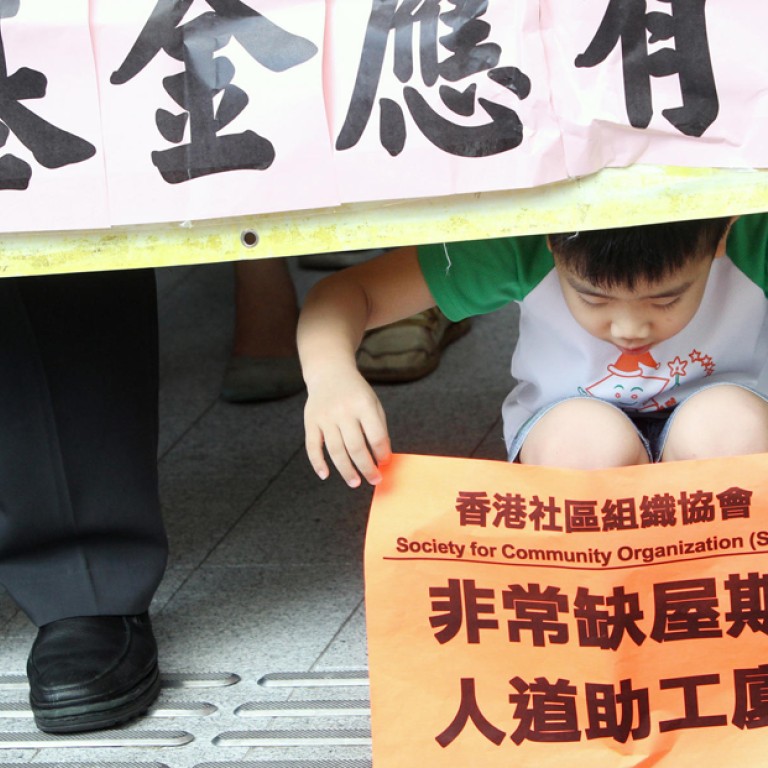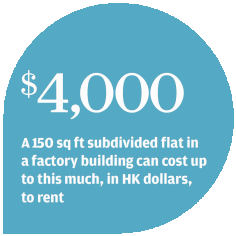
Tenants in factory buildings to get subsidies
Needy families will now get one-off allowance after earlier being rejected on legal grounds
About 5,000 needy families living in illegally converted subdivided units in factory buildings can expect a one-off allowance of up to HK$10,000 under a policy U-turn that in effect asks officers to turn a blind eye to the unlawful alterations.

But commission members in general were convinced that the U-turn was in line with the spirit of the fund, which is to help needy people who are not receiving public assistance or living in public rental housing.
Chief Secretary Carrie Lam Cheng Yuet-ngor, who chairs the commission, maintained there was no question of an amnesty.
"Fund officers will advise those families to find another place to move if it is found that they may be living in [illegally converted subdivided flats in industrial buildings]," Lam said.
She maintained inspection and prosecution by the Buildings Department would continue.
The cash allowance scheme will give needy families in inadequate housing payments of HK$3,500 to HK$10,000.
It was endorsed by the commission last month but those in illegally converted industrial buildings were excluded because of legal concerns. Pressure groups argued this was unfair.
"Even if the flats are illegally converted, the one who should be held responsible is the landlord, not his tenants," commission member and Community Care Fund task force chairman Dr Law Chi-kwong said. "So, we are convinced that the tenants should also be eligible for the allowance."
But Polytechnic University political scientist Dr Chung Kim-wah argued that it could give a confusing message to the public.
"On the one hand the government says it will not tolerate illegal building alterations. On the other hand it is giving money to those living there."
Chung hoped the government would work out a long-term policy to regulate subdivided flats.
There is no legal definition of a subdivided flat. Commonly it is used to describe cases where one flat is partitioned into two or more self-contained cubicles. Many of them are illegally converted. They are popular with needy families, especially those who are not eligible for public rental housing.
Public concern arose after a fire in a Mong Kok building in November 2011 killed nine people. It had been subdivided into tiny rental dwellings.

